1. Introduction
Tuberculosis (TB), including its drug-resistant forms, can affect people in all parts of society. However, its effects are often most devastating among the poorer and more marginalized members of a society. A person’s quality of life, social status and financial situation can be made worse both by the disease and by its treatment, namely: adverse drug reactions produced by the treatment, the high costs he or she may have to pay while undergoing care and treatment, having to miss work due to illness, and the stigma and discrimination linked to the disease.

 Feedback
Feedback
